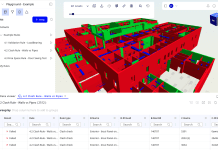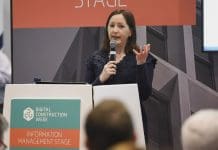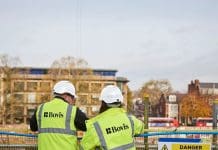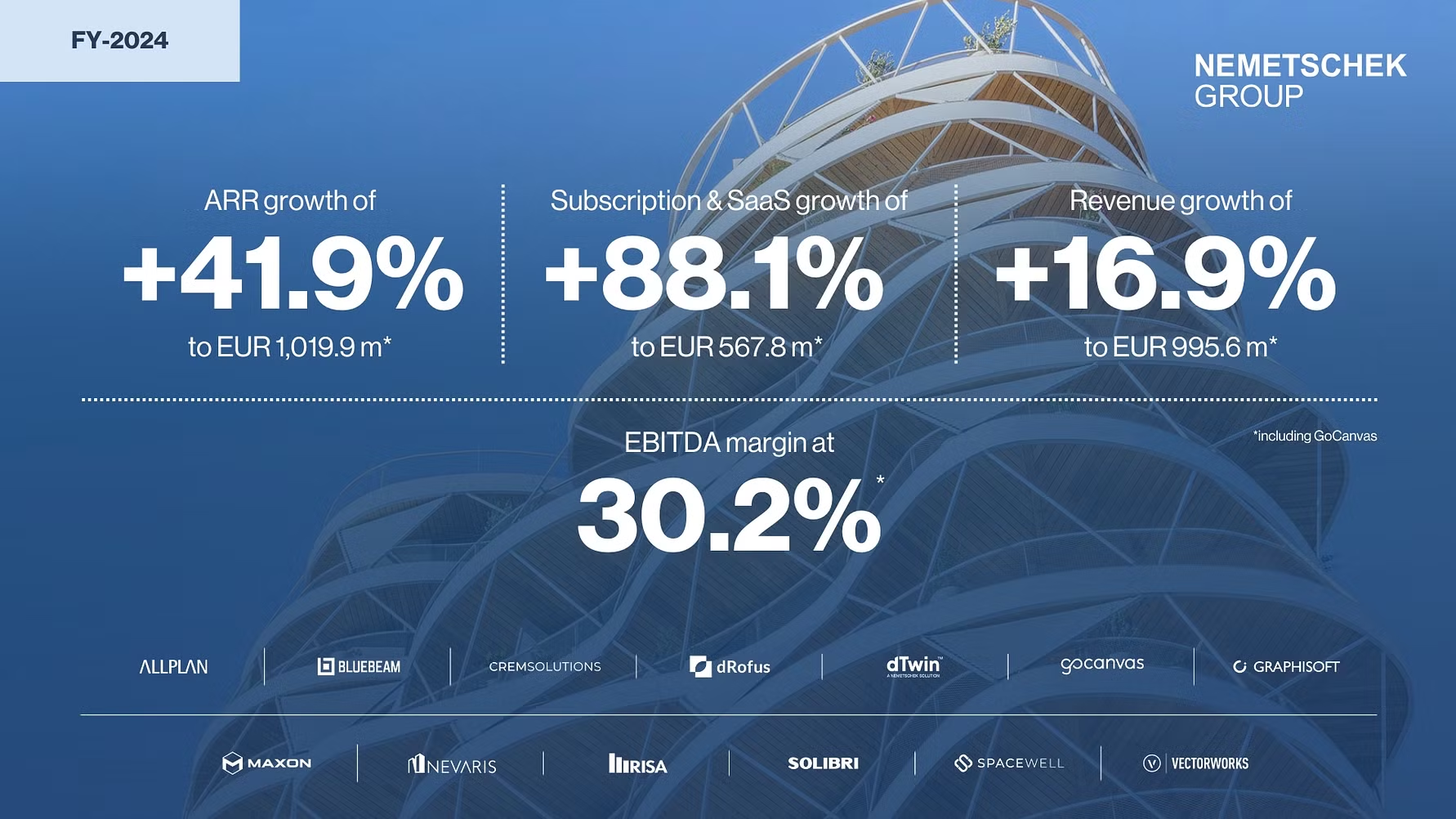Sustainability is a key driver to digital transformation in the environment. Alexandra Bolton, executive director of the Centre for Digital Built Britain (CDBB) and a member of the Construction Innovation Hub senior management team, considers the challenge, the opportunity and the potential prize
Addressing the challenges of the climate emergency is a pressing agenda for us all. The 2018 UN Intergovernmental Panel on Climate Change (IPCC) Special Report brought focus to the urgent need to keep global warming to a maximum of 1.5ºC – and the terrible consequences for millions of people around the world if this is exceeded. Global leaders have rightly moved sustainability to the top of their agenda.
Any one person or organisation can make a difference, but together we can make an even bigger impact. That is why the UK government’s legally binding commitment to achieving net-zero emissions by 2050 will require collaboration. Across the construction industry, the challenges are many and complex, and they can only be solved through wide-reaching collaboration. The information management and emerging tools and technologies championed by the Construction Innovation Hub, of which CDBB is a core partner, give the construction and infrastructure sectors tools to address its significant carbon footprint today. I feel a huge sense of privilege that our mission brings the unprecedented opportunity to help these sectors make better-informed decisions explicitly linked to creating sustainable outcomes.
With its outsized contribution to carbon emissions, the construction sector represents one of the most urgent and promising opportunities for improvement through innovative use of novel and traditional materials and construction techniques; reduction of waste; and a planning system and process that is more mindful of the natural environment.
The UK Fires report Absolute Zero (November 2019) highlights the wastefulness of current methods of construction: “Construction uses half of all steel and all cement, but has developed to use them inefficiently. The requirements for materials in construction could be reduced to achieve Absolute Zero by avoiding over-specification and over-design, by structural optimisation and with reuse.”
The use of the UK BIM Framework in the UK, and ISO19650 series internationally, help to address overdesign and waste while improving efficiency. The BIM Benefits Methodology, published by CDBB in 2018, proved that building digitally before you build physically, and using modelling and virtual reality to bring the design to life, helps identify clashes and mis-specifications early in the construction process. This reduces wasted design effort, cost and on-site rework, which in turn reduces the energy, carbon and materials used in the physical build.
Industry roundtables
From late 2018 to summer 2019, we ran a series of industry roundtables with the Chartered Institute of Building to understand how our work as part of the Construction Innovation Hub can address the digital challenges construction faces. All participants wanted the benefits of BIM and digital construction to be demonstrated more clearly to get board-level buy-in. As we work to build capacity and capability for information management, we will continue to showcase the value it generates beyond just cost savings.
Using BIM on its own can provide measurable benefits, and when combined with emerging practices and technologies these benefits are amplified. For example, using sensor technologies and data analytics to understand the whole-life performance of new structures helps avoid wasteful over-design. Importantly, it also optimises the maintenance and performance of our existing assets that make up the majority of our built environment.
In their 2019 paper Smart Sustainability: Exploiting Data in Engineering to Mitigate Climate Change, our colleagues at the Cambridge Centre for Smart Infrastructure and Construction (CSIC) consider measures to secure carbon and resource efficiency in design and construction. Citing the Construction Strategy’s ambition to reduce the whole-life carbon of construction by 2025, CSIC highlights the potential benefits of using data to understand sustainability and carbon efficiency across the entire life cycle of a project: “Data can enable better design, more efficient use of resources, reduction in waste, time and cost savings, improved safety and increased infrastructure resilience – all critical factors in reducing carbon emissions from our built environment.”
CDBB’s National Digital Twin Programme
This challenge is being taken up by CDBB’s National Digital Twin Programme as it coordinates the development of an information management framework (IMF) for the built environment. As a solution to the challenge of data interoperability across the built environment, the information management framework will unleash an ecosystem of digital twins connected via securely and resiliently shared data. Better data creates better information which leads to better decisions. The prize of the IMF will be greater insights to secure a built environment that has an ever-lighter carbon footprint as it evolves.
Just as shared environmental data has brought about new fields of knowledge and new revenue streams united by the common goal of mitigating climate change, sharing data across the built environment sectors will be both a solution to the crisis in which we find ourselves and create new opportunities for people and businesses. We will be publishing a technical document outlining our approach to the development of the IMF next month.
While good information management underpins the journey to the NDT, poorly organised information is identified by the UK Infrastructure Client Group’s Smart Infrastructure Index as the stumbling block for many organisations to laying the foundations for digital transformation and for digital twins. We need to work together to value information as an asset, requiring good information management practices. Without high quality, curated information we cannot make the informed decision to create the changes needed in both the built and natural environments. Embedding good information management should be fundamental to every organisation’s decarbonisation strategy and providing industry with more guidance to do this is a priority for the Centre.
Net-zero carbon action
Many organisations are in the process of identifying necessary action to secure net zero carbon emissions and CDBB applauds the steps taken by UK infrastructure clients and regulators to further the decarbonisation agenda, including energy regulator Ofgem’s just-published Decarbonisation Action Plan that includes reviewing the way its energy systems are managed and becoming more adaptive in regulatory approaches. Sustainability is woven into the core of our work and research as a partner in the Construction Innovation Hub.
Collaboration on the journey towards digital transformation is key to creating a green information economy and a sustainable built environment: one that can be designed using only the materials required and no more; built and operated efficiently; and integrated to secure sustainable benefits at scale – benefits that serve the interests of the planet and the people who live on it.
If you have case studies or stories to share on how you are tacking this, please get in touch. As we work together the develop the next generation of information management standards and processes, I urge you to take up the solutions available to help today.
The Centre for Digital Built Britain works with government, industry and academia to develop, support, accelerate and promote the information management standards, guidance, tools, skillsets and capacity, as well as the supporting digital economy, which underpin the use of all digital systems, technologies and associated ways of working across the lifecycle of social and economic infrastructure and buildings. Together with Manufacturing Technology Centre and BRE, it is a partner in the Construction Innovation Hub, the funding for which was provided through the government’s modern industrial strategy by Innovate UK, part of UK Research & Innovation.
Alexandra Bolton
Executive director
Centre for Digital Built Britain
www.constructioninnovationhub.org.uk














